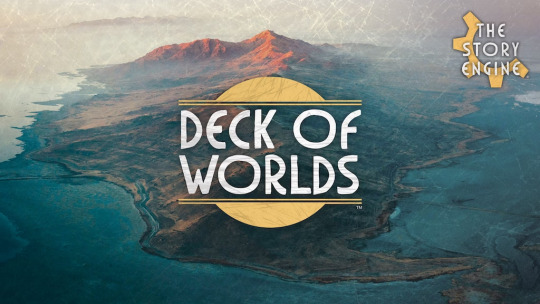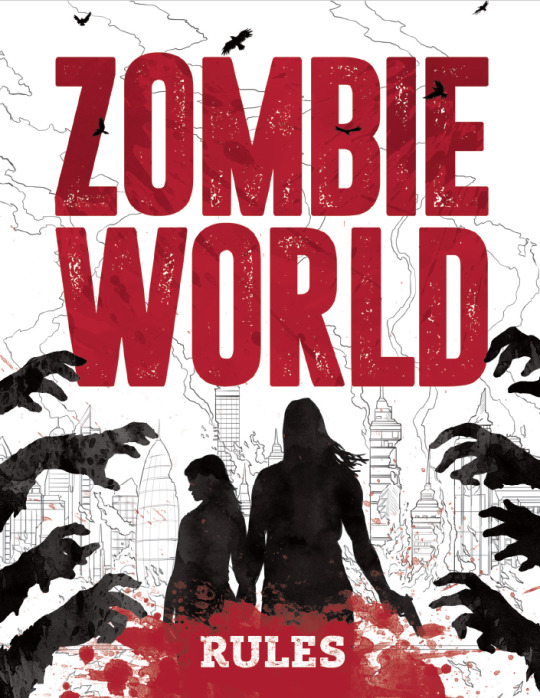#you use three dice & a deck of tarot cards & a set of tokens
Explore tagged Tumblr posts
Text
concept: the whole kira investigation is just a ttrpg light invented from scratch. it’s very cool in theory but there so many overlapping rules that it’s basically unplayable. misa and L are the only people who actually know what’s going on & that’s because they’re both head over heels for him and therefore spent a solid weekend highlighting the three hundred page PDF he sent everyone. L’s character dies in the first half but he creates a new one and comes back as mikami.
#death note#you use three dice & a deck of tarot cards & a set of tokens#there’s mechanic where players can share tokens amongst themselves but ONLY if they don’t get caught#if you get caught you need to draw three cards & make a saving throw with either your own d6 or the d6 of your partner depending on#whether you have an even or odd number of tokens and if you’ve drawn from the major arcana in the past thirteen turns#its partnered but the partners aren’t necessarily allied its more related to his Ethical Harmony mechanic#where Sacred actions (not synonymous with good) need to be balancd with Profane actions#matsuda and ide are partnered and constantly metagaming bc they genuinely do not understand how to not metagame if you’re actively trading#physical resources out of character#L and misa are partnered and they’re very good at it#light runs a little minigame for misa & L at some point thats a murder investigation in america#L makes a delightfully cringy character he loves & misa#reuses a beloved NPC from the main campaign#.txt
147 notes
·
View notes
Text


Cards (Generative): Great RPG Mechanics #RPGMechanics
Prologue
One of the great tragedies of moving to online play has been making certain ttrpg elements more challenging. There’s the obvious: not being able to fully see & grok other players’ body language and the tactile element of a shared table with books & sheets in your hand. But there are also system elements made difficult like maps and shared dice rolling. While these particular issues had been solved by various VTTs and apps, there’s a cost in ease. For me it’s more work to assemble an electronic map and tokens than to grab stuff off the shelf.
Cards in rpgs are a tougher issue for online play. There have been apps to manage standard playing decks, but unique ones present more of a challenge. I’ve played quite a bit with the Roll20 app– and it works for some purposes but not for others. And, even with the ability to make unique electronic decks, you still don’t have the tactility– the sense of holding, shuffling, and managing your cards. The various board game simulators have aimed to replicate this, with varying success.
On Cards
Cards in tabletop rpg play usually have three possible functions: reference, generation, and resolution. I’ll talk about their place as a heightened randomizer tomorrow. Today I want to cover the cool ways in which they’re used to create worlds and set things up.
The earliest memory I have of someone doing this was an old-school player who picked up D&D in the mid-1970s as a college student. He ran a campaign where he would do a tarot reading and then based on that modify your stats, give you a family background, and assign you traits. It was simultaneously exciting and disempowering.
I had that in mind years later when I sketched out a tarot for our ongoing fantasy world. I mocked up cards and wrote up meanings for the whole deck, based on the history we developed. Eventually I used that as a prompt system for generating NPCs. You would draw three cards and then sketch out a character based on those elements.
That’s not unlike the approach taken by The Story Engine. It’s both a writing and a roleplay tool. The original one is a collection of prompts, which is interesting and probably a useful tool for doing in-depth session planning. But I’m more intrigued by The Deck of Worlds. This offers set of world-building elements and prompts. You stack and build up details on the tiles, creating an interesting picture. It’s beautifully put together.
Likewise we’ve seen a variety of cards as tiles used for generating random dungeons and wilderness areas. I can imagine a Hexcrawl done like this, letting the GM create the terrain as they go. I’m certain those are already out there. These generators make use of the strength of cards: the richness of information possible on them. They’re a step forward from the classic random roleplaying tables.
With cards, instead of a simple prompt, you can easily add more text, sub-tables, and graphical information. You elevate the randomizer. If you want to increase utility, you can use both sides or have the orientation of the cards impact the results. It’s a great way to bring tables to life– but does have the disadvantage of a more serious investment of energy. There’s a big difference between a multicolumn, one-page table and a version of that table done as a deck of cards. Speaking as someone who has accumulated a lot of RPG reference cards, I can attest that the space and storage component can become an issue– beyond the question of how many times you’ll actually need to use the deck…
But two recent games build the use of cards directly into the set up in an interesting way. Alice is Missing uses cards to establish the world. It’s clever because of how the cards to impart information and keep the play silent. You have character, clue, suspect, and location cards. The particular combination of those dramatically affects the story being told: what & when those appear.
Likewise Zombie World offers an cool approach to using cards as building blocks. A checklist card of elements guides the collaborative creation of the PCs’ enclave. But more interesting is the random set up which frames the whole game. Players are dealt four cards: 1 Past, 2 Present, and 1 Trauma. The first and the last of these they can look at, but are kept facedown. From the Present cards, describing who their character is now, each player picks one and turns it face up, discarding the other.
The decks are substantial for these– expanded by a couple of supplements. Based on the mix of their three cards players come up with character details and background. After introductions another set of cards is dealt out between players. This describes a relationship between the two of them. They then negotiate and work out the details. Once play actually begins, one of the goal each player has is to hit their trigger and reveal their Past and Trauma cards.
I love the way the use of the cards reinforces the themes of play. Character creation is super fast– you can set up and get to playing in 15 to 30 minutes, depending on the group. That’s the kind of energy you want going into a horror game like this. Zombie games lean into “we are our own worst enemies,” and the hidden elements of characters reinforce that. Characters are rich, but they are also disposable. If you die early, generating a new character is the work of a few moments. The cards also factor into resolution, but I’ll come to that tomorrow.
For a time Magpie had a sci-fi version of the Zombie World system on their docket. That seems to be in limbo now– perhaps the form factor of ZW didn’t do as well as they hoped or perhaps the success of the Avatar rpg washed everything else away. It’s too bad because right now, with the success of Among Us, a sci-fi take on these mechanics could be awesome.
0 notes
Text
Welcome
I write indie ttrpg's as Rat Wave Game House. My games are largely about alienation and connection. I try and right with straightforward rules and evocative flavour. You can find my itch at ratwavegamehouse.itch.io and explore some other links (like a newsletter and discord) at thedice.uk (I also have a blog up there and will probably cross post some stuff from there. Some of the games I made include;

Transgender Deathmatch Legend - A schlocky, queer, wrestling inspired hexcrawling beat-em-up for 2 players, using a deck of playing cards.

How to Embrace a Swamp Creature - A Belonging outside Belonging game of mentally ill swamp things living in a deprived commuter town. Played without dice or a central GM figure, explore the messy lives of the cast and the forces at play using a token economy. Filtered autobiography of growing up queer and nuerodivergent.

Fear the Taste of Blood - A three player, asymmetric ttrpg inspired by classic movie monsters like Dracula and the Wolfman. Uses a deck of playing cards and a dice pool to tell the story of a terrifying monster in the night, and the survivors who face it.

Follow Me in the Night; a Cursed Radio - A solo journaling game inspired by film noir movies, Phonogram by Kieron Gillen and Jamie McKelvie, and many sleepless nights. You play a weary magic user, wandering dark streets banishing the phantoms that haunt them; phantoms powered by bad memories and cursed music. You use a set of playing cards to discover your journey and build a playlist.
Upcoming releases include Jukebox Tarot, Demon Cage Fireball and more small games in the world of Old Gods and Young Guns.
#ttrpg#indie ttrpg#belonging outside belonging#no dice no masters#journaling game#itch io#game design
27 notes
·
View notes